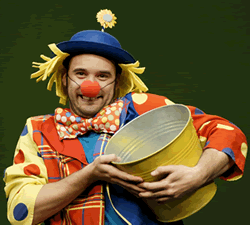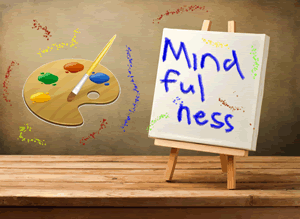 There is plenty to worry about in our world today. Things go wrong and life can be stressful, and it is for exactly this reason that we need to make time to have fun, to laugh, to play. We don’t always have to lead with seriousness. In fact, it’s imperative that we don’t.
There is plenty to worry about in our world today. Things go wrong and life can be stressful, and it is for exactly this reason that we need to make time to have fun, to laugh, to play. We don’t always have to lead with seriousness. In fact, it’s imperative that we don’t.
Emotion research has shown us that we often pay more attention to negative events, and these can have a greater impact on our emotional state than pleasant experiences. Professor Roy Baumeister and colleagues summed it up succinctly in his academic article entitled “Bad is Stronger than Good” (2001). However, strength can come in many forms, and stronger doesn’t necessarily mean more important.
Recent studies and theories such as Frerickson’s (2008) Broaden and Build theory explore how emotions such as joy, curiosity, and feeling connected, can help broaden the number of possible outcomes or solutions we can find, and build our resources. Those happy moments can create a wealth of funny memories, give perspective when times are tough, and build bonds of friendship, so we have someone to turn to when we need a friend.
A meta-analysis of 225 studies with more than 275,000 participants found that more frequent positive affect is linked to better social relationships, greater physical wellbeing, longer life and greater immunity (Lyubomirsky, King & Diener, 2005). Laughter has also been found to have positive impact on our physiological health as well as reduced anger, anxiety & depression (McGhee, 2010).
Of course this is not to say we can simply laugh away tough times, or smile & “think positive thoughts” to cure illness. This idea is not only wrong; it can be dangerous & harmful. Barbara Ehrenreich gives a passionate and insightful exploration of this in her book “Smile or Die: How Positive Thinking Fooled America and the World”.
So called negative emotions are important for human experience, and authentic and honest laughter, smiles and silliness can be fabulous. What I’m recommending here is not fake happiness, but an attitude of playfulness, and where possible, a playful approach to life.
In 2006 I was asked to run a workshop on emotion regulation and positive communication for 200 high school exchange volunteers across Canada. I decided to be brave, and to step outside my comfort zone, so I offered to run the workshop in English, and then again in French for the French-Canadians. I’d studied French at school and uni, and was taking a refresher course at Alliance Française in Toronto, and had just learned a new slang word for teenagers “les gosses”. So I prepared my slides “How to Survive in a World full of Kids” and “Comment survivre dans un monde plein de gosses”.
Everyone laughed, and I though, “yes, I am pretty funny!” As the workshop progressed, I noticed that every time I used the words “les gosses” (kids), the participants laughed – and so, I used it more often! “These darn kids.” “Kids can be so frustrating!“ “Mon dieu, les gosses! Que faire!!”
After the workshop, feeling quite pleased, a colleague came over to ask me how it had gone. “Pretty well” I replied, when one of my Quebecois colleagues added, “Well, actually Therese, we wanted to wait till after the workshop to tell you … we know what you meant, in France les gosses means kids, … but in Quebec, well here in Canada, it means testicles”.
So I had just given a one-hour workshop on how to survive in a world full of balls!
It’s moments like this that we sometimes have a choice. We can feel sheer embarrassment, anger that no one told us earlier, anger at ourselves for making such a mistake, … or sometimes, we may have the capacity to see the funny side; to realise that “a world full of balls” may even be an apt analogy for working with hundreds of international teenagers every year. We can appreciate that it was memorable if nothing else, and that it’s not the end of the world. This more light-hearted approach can be a healthier way for us to live.
Psychologist, psychobiologist and neuroscientist Jaak Panksepp, has studied play for fifty years. His research includes tickling lab-rats and he has identified play as one of our seven fundamental motivational urges (2010). When we see others in pain, our nurturing urge motivates us to help them. At other times we can be motivated by anger, fear or loneliness. However when we feel connected to others, we can be motivated in a social and joyful way through play.
Playfulness is like a dance. Play happens in safety and allows children and adults to explore boundaries. If we cross the line, and there is intentional hurt, we are not playing anymore.
So how do we bring this into our schools or the classroom? Paul McGhee’s excellent book “Humor as Survival Training for a Stressed-Out World” and seven-step program for developing humour, suggests you start with a humour-audit. What makes you laugh? Conduct humour interviews. Start a funny-hunt – on signs, in newspapers, on TV.
Play theorist Bernie de Koven recommends cultivating playfulness. Add a third team or switch players half way through so winning is not the goal, the aim is to have fun and try new things. Mary Kay Morrison’s “Using Humor to Maximise Learning” outlines ideas for classroom activities. Lead by example. Learn to laugh at yourself. Look for humour during stressful times. Music can be a great way to add some fun to a situation.
Play is quite seriously important – as noted by Dr Peter Gray, Research Professor of Psychology at Boston College: “In recent decades we as a society have been conducting a play-deprivation experiment …. The results, I think, are in. Among other things, it promotes anxiety, depression, suicide, narcissism, and loss of creativity. It’s time to end the experiment.”
Childhood (and, I would argue, adulthood) should be a time to nurture our imagination, and to have fun. Imagine our science classrooms filled with wonder, our history classes brimming with awe, mathematics being explored with joy and curiosity. Yes, there will be times when things are ver serious, and times that may require a solemn authority. Until then, may you bring some light-hearted mischief to your schools, and go playfully.
Therese Joyce
Consultant & Speaker – Resilience, Leadership Development, Playfuless & Positive Education www.theresejoyce.com
Associate Director, Centre for Positive Psychology, University of Melbourne
References:
Baumeister, R. F.; Bratslavsky, E.; Finkenauer, C; Vohs, K. D. (2001), Bad is stronger than good., Review of General Psychology, Vol 5(4), pp323-370.http://dx.doi.org/10.1037/1089-2680.5.4.323
DeKoven, B. (2014), A Playful Path, Lulu.com
Ehrenreich, B. (2009). Smile or Die: How Positive Thinking Fooled America & The World. London, England: Granta Publications.
Fredrickson, B. L. (1998). What good are positive emotions? Review of General Psychology, 2(3), 300-319. doi: 10.1037/1089-2680.2.3.300
Lyubomirsky, S., King, L., & Diener, E. (2005). The Benefits of Frequent Positive Affect: Does Happiness Lead to Success? Psychological Bulletin, 131(6), 803-855. doi: 10.1037/0033-2909.131.6.803
McGhee, P. (2010) Humor as Survival Training for a Stressed-Out World, Author House
Morrison, M.K. (2007), Using Humor to Maximise Learning, R&L Education
Panksepp, J. (2010). Affective neuroscience of the emotional BrainMind: evolutionary perspectives and implications for understanding depression. Dialogues in Clinical Neuroscience, 12(4), 533–545.


